Qlife summer school : Quantitative Phage-Bacteria Dynamics Across Scales
Download here tentative planning
Master in Life Science, ENS
BIO-Q12-Qlife School | Quantitative Phage-Bacteria Dynamics Across Scales
Year and Semester : M2 | S2
Where : Biology department, ENS
Duration : 1 week (July 8-12, 2024)
Credits : 3 ECTS
Maximum class size : 25 students
Coordination
Patrick Charnay, Biology Department, ENS
Chairman of the scientific committee : Joshua Weitz, University of Maryland
Keywords
Digital practical, quantitative viral dynamics, cellular infection, within-host dynamics, population dynamics, evolutionary dynamics, impacts on ecosystems
Course prerequisites
Basic experience in file manipulation under Unix/Linux and coding ability in Python or R. Attendance is competitive (25 participants) and open to M2 and PhD students, postdocs, engineers and junior scientists with backgrounds in life science, geoscience, physics, chemistry, computer science and mathematics.
Course objectives and description
Aims and themes : Viruses transform human and environmental health. As the global SARS-CoV-2 pandemic revealed, viruses can rapidly spread within and between individuals in a connected population with devastating consequences. Yet, viruses infect organisms across all scales of life, including bacteria and other single-celled microbes. These infections are often antagonistic, leading to cell death and the release of virus particles. But, viral infections can also lead to persistent infections that benefit their hosts. Altogether, phages play critical roles in shaping the flow of nutrients in natural systems and can be deployed as therapeutics to treat antibiotics-resistant pathogens.
This course will bring thought leaders in dialogue with early career scientists to advance the integrative study of quantitative phage-bacteria dynamics across scales. It will train participants to model virus-host interactions from cells to populations, integrate robust computational methods into research practice, and bridge the gap between models and data motivated by ongoing challenges in microbiology, therapeutics, and ecology. For the digital practical (every afternoon), participants will develop computational models of phage-bacteria dynamics spanning cells to populations and learn to infer novel anti-phage defense features in bacterial genomes. Informal discussions and poster sessions will foster interactions between participants and instructors.
Organisation : Each day will include two introductory lectures in the morning, followed by digital practicals run by experts in the afternoon.
The evenings will include inspirational seminars from prestigious scientists and poster presentations by the students.
Assessment of M2 students
After the course, the student who requires a mark writes reports on two of the digital workshops, which will be assessed by the coordinators of the practicals.
Course material
The course will include introductory lectures, a series of hands-on digital workshops run by experts, inspirational seminars from prestigious scientists and poster sessions run by the students.
Application Deadline
April 8th, 2024
Registration fees
150 € (fees cover food and lodging from Monday morning to Friday afternoon. Some travel grants will be available).
Application procedure
Register through this link
In addition, provide
– a CV,
– a motivation letter (including justification for travel grant if requested)
– and a supporting letter from a supervisor, organized as a single pdf file, with “Qlife Phage Bacteria School 2024_LASTNAME” as subject header to qlife-school chez bio.ens.psl.eu






